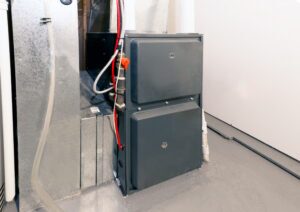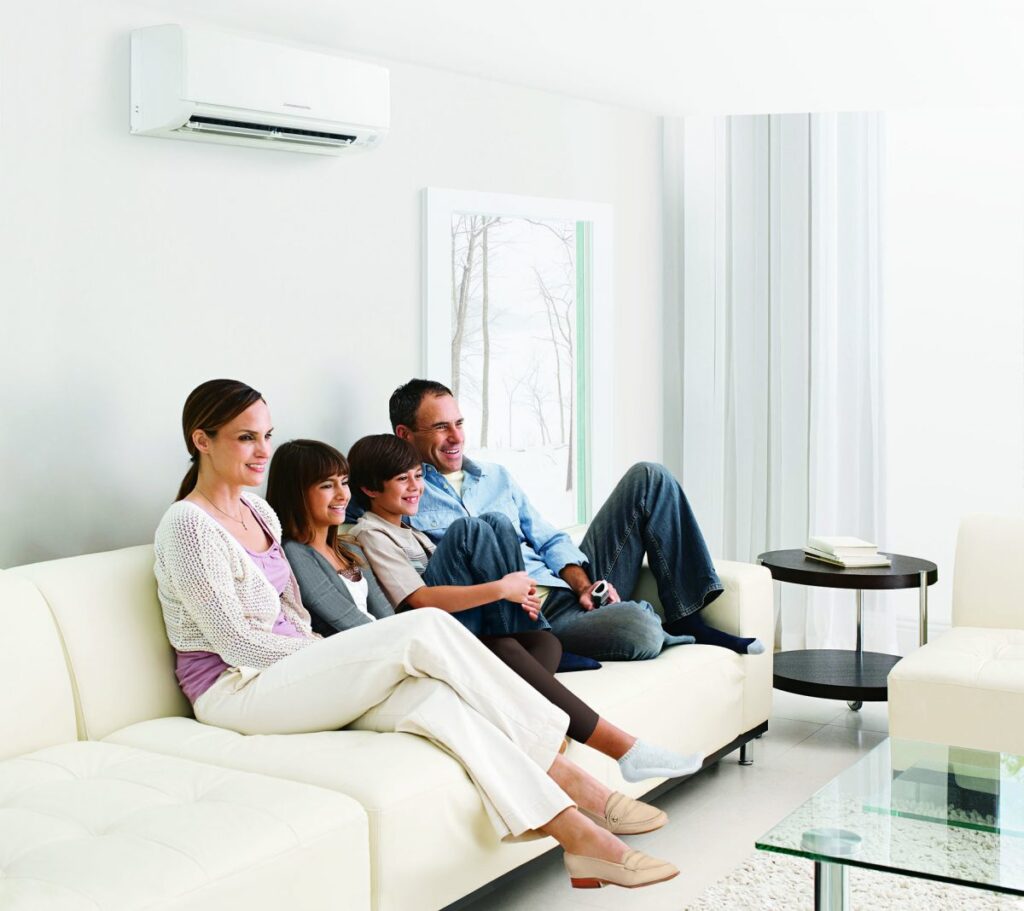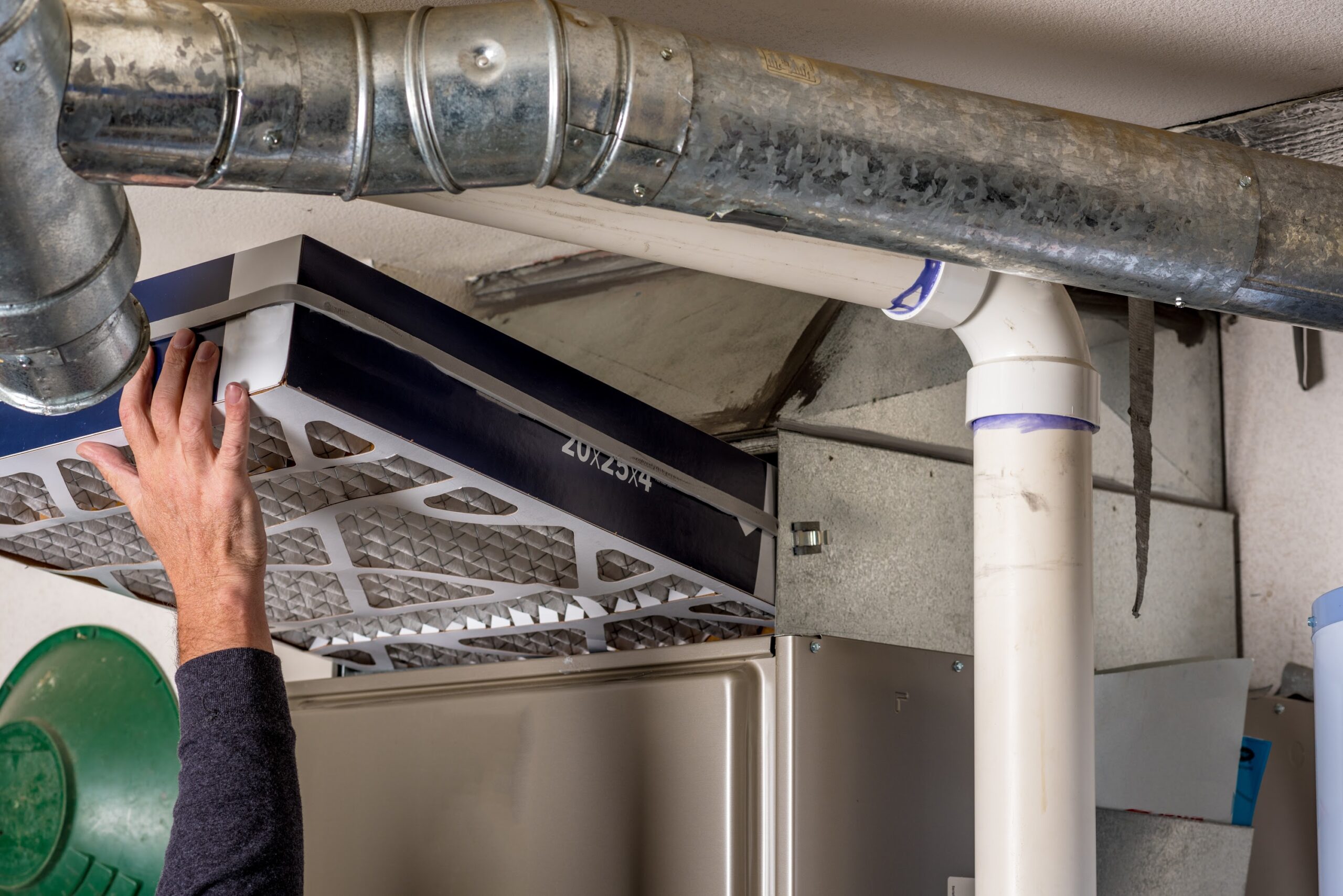Ever flip your thermostat and wrinkle your nose at a strange odor? You deserve a comfortable home that welcomes you with warmth and fresh air. At B&L OTT Heating & Air Conditioning, our professionals can guide you in spotting harmless smells and flagging serious ones before they become hazards.
Burning Dust Odor: Harmless and Brief
When you turn on your heating system for the first time in cold weather, you might detect a light burn smell. That smell comes from settled dust on heat exchanger plates or duct surfaces. When your furnace runs, it heats those surfaces and burns away dust.
You’ll notice the odor only during the first few minutes of a cycle. Once the dust clears, the smell fades and doesn’t return until heating stops for weeks. To prevent the odor, you replace or clean your filter before heating season. Clean filters capture dust before it drifts onto hot elements. You can also vacuum around vents and open air returns. That simple step removes surface dust and shortens the odor cycle.

Musty or Moldy Smell: Trapped Moisture in Ducts
When you detect a musty or mildew-like odor, you know moisture has collected in your ducts during warm months. Humidity or leftover condensation from a summer AC cycle can remain in metal or flex runs when your air conditioner sits off. When you switch to heating, that moisture releases musty scents into your home. To address this, schedule a duct cleaning and run your system’s fan on dry mode for a few hours.
That action circulates air without heating and helps evaporate moisture. You might also install a UV light inside the plenum to kill mold spores. If the smell returns, check the attic or crawlspace ducts for leaks where humid outdoor air enters. Sealing those gaps stops fresh moisture from joining trapped humidity.
Electrical or Plastic Burning Odor: Safety Alert
A sharp, acrid smell hints at overheating wires, failing capacitors, or melting plastic components. You must act the moment you notice it. Electrical insulation inside blower motors or control boards can overheat if bearings wear out or if dust clogs cooling vents. Plastics in relays and connectors can glow hot and emit a chemical odor.
Turn off the system at the breaker to cut power and prevent further damage. Then, call a technician to inspect wiring and motors. They’ll replace worn parts and tighten loose connections to stop heat buildup and prevent fire risk. Never ignore a chemical or plastic burning smell from your furnace.
Rotten Egg Smell: Possible Gas Leak
Natural gas providers mix mercaptan into gas lines to alert you to leaks. That compound gives a distinct rotten-egg or sulfur scent. When you smell it while the furnace runs or even when the system is off, you face a serious hazard. Leave the house immediately and call your gas company’s emergency hotline. Once you’re in a safe location, the gas crew will perform a pressure test and locate the leak. After they clear the hazard, have your furnace and gas lines inspected. That ensures a tight seal and safe operation.
Seared Oil or Plastic Smell: Recent Repairs or New Parts
After a recent service visit or equipment upgrade, you may notice a weird smell from your heater, like an oil or plastic scent. Technicians use lubricants or install plastic-coated wiring that can emit odor during the first few cycles. You might also hear a mechanical sound as new bearings bed in. These smells fade once fresh components seat and lubricants settle. To ease the process, run a test cycle before full heat demand. That early run warms parts gently and drives off any manufacturing residue. If odors persist beyond two cycles, call your service provider.
Preventing Odors Through Seasonal Tune-Ups
You can stop many furnace smells before they start by scheduling a seasonal inspection each fall. Our technician will check filters, clean burners, and inspect ductwork. We’ll tighten electrical connections, lubricate moving parts, and verify combustion plate alignment. We also test for gas leaks and check flue seals for safe venting. After the tune-up, you’ll receive a checklist showing work performed and any items to watch next season.
When to Call a Professional
Any persistent or strong odor that doesn’t clear after initial cycles demands expert assessment. Professionals use specialized tools to find hidden issues in combustion chambers, wiring harnesses, or gas lines. That intervention stops small faults from turning into costly breakdowns or hazards.
Call Us For Your Next Tune-Up or Safety Inspection
Once you recognize the source of the heating system smells and act on it, you keep your home comfortable and your family safe. You can also schedule filter changes, duct cleanings, and carbon monoxide checks to guard against recurring odors. For professional tune-ups and safety inspections, as well as other heating services, give us a call at B&L OTT Heating & Air Conditioning in Reading, PA.





